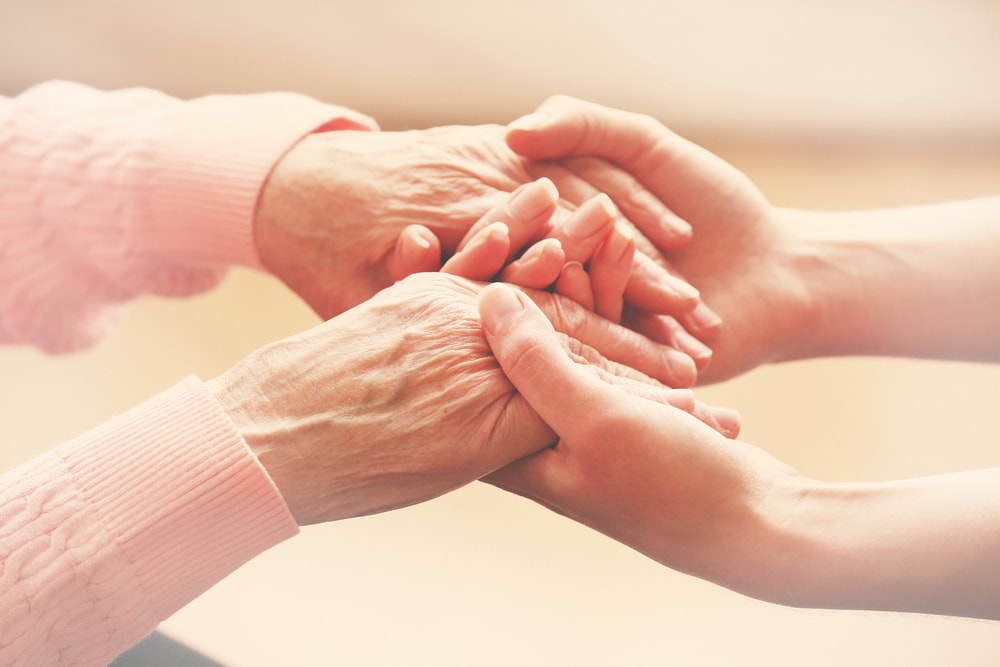|
Young people fantasize about their futures: graduations, careers, love, partnership, children, grandchildren, retirement, and the ability to live independently until they die peacefully in their sleep. I am willing to bet none will envision being part of the roughly thirty percent of elderly individuals who require assistance with daily living.
Average life expectancies, living expenses, and healthcare costs are increasing. So too are the number of adults between the ages of 40 and 60 caring for their elderly relatives while parenting their own children. They’ve even been given a name: The Sandwich Generation. Recently, I was asked by Jamie Tompkins of Q13 Fox News to talk about the growing number of individuals who are straddling the roles of parent and caregiver. You can see the interview here. Whilst preparing to speak with Jamie, my thoughts drifted to Dorothy, my beloved grandmother. From the time I was a little girl, Dorothy would talk to my mother, sister, and I—anyone in the family who would listen really—about her values and goals around aging and death. I recall driving by elder care facilities and hearing Grandma sigh and say, mostly to herself but audibly enough for others to hear, “I hope I never have to live there. That place is for old people.” Anyone who knew Dorothy knew independence was her top priority. She never wanted to be a burden to her children or grandchildren. Dorothy’s husband, my grandfather, Donald, was a exquisite stained glass artist. There was always a new lamp shade, wall hanging, or sun catcher in their home and, what he didn’t display in his home, he gave to the people he loved. Anytime my mother, sister, or I would fawn over one of his latest creations, Grandma would always say, “Put your name on it!” At the time, this felt something akin to the cops showing up just as the party was getting started. My thoughts would immediately shift from the beautiful objet d'art to the day we all knew was coming but nobody wanted to think or talk about. Not cool, Grandma, not cool! These were always moments of conflict for me. I wanted Grandma Dorothy to live forever; she wanted the opposite. And she wasn’t shy letting us know about it. Usually when we least expected it. Though these comments seemed slightly harsh at the time, in hindsight, they were actually gifts. Grandma seized a topic my family would have otherwise shoved to the farthest, darkest reaches of the storage closet and thunked it right down in the middle of the kitchen table. She forced us to deal with death and, in doing so, made the idea a little less scary. At age 84, when Grandma Dorothy was placed on life support due to complications from an automobile accident, our family’s choice was painful but clear. And we had Grandma’s morbid sense of humor to thank for it. Grandma Dorothy, along with the numerous sessions I’ve had with the brave and hardworking members of The Sandwich Generation, were the inspiration for much of the advice I had for Jamie. Since the magic of editing transformed an hour-long conversation into a five-second news clip, I’ll give you the highlights of what didn’t make it into the reel:
Talking about later-life care can be painful and awkward for your children. But it’s better for your children to have a few awkward moments than a potential lifetime of regret or confusion about whether or not their mother or father got the quality, end-of-life care they deserved. Thanks to Q13 Fox News for being the voice of The Sandwich Generation and to the brave soldiers who are striving to balance caring for themselves, their children, and their elderly relatives. I wish you all quality time with your loved ones this Thanksgiving! Dr. Jill Gross is a licensed psychologist, therapist, and counselor. She offers grief therapy, divorce support, and other counseling services in the Phinney Greenwood area of Seattle, WA. Need help navigating a transition?
0 Comments
Your comment will be posted after it is approved.
Leave a Reply. |
AuthorDr. Jill Gross is a licensed psychologist, specializing in grief and divorce. Her coaching and therapy practice is located in the Phinney - Greenwood area of North Seattle in Washington. Archives
May 2021
Categories
All
|
HoursM-TH: 8:30 AM - 2:00 PM.
By Appointment Only |
Telephone & Email |
Address503 N. 50th Street
Seattle, WA 98103 |
*Header Photographs courtesy of Josh Martin



